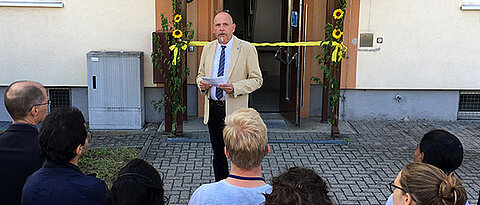
Back in 2014 already, the Faculty of Biology established the "Center for Computational and Theoretical Biology" (CCTB). On September 21, University President Alfred Forchel inaugurated the CCTB's new rooms on Hubland Nord campus.
more
Back in 2014 already, the Faculty of Biology established the "Center for Computational and Theoretical Biology" (CCTB). On September 21, University President Alfred Forchel inaugurated the CCTB's new rooms on Hubland Nord campus.
more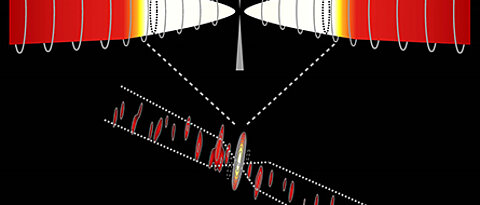
German astronomers have measured the exact location of a black hole and the magnetic field near the event horizon. They show that magnetic fields are capable of providing enough magnetic energy to power strong relativistic jets in active galaxies.
more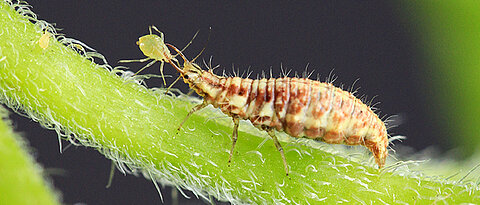
Putting a halt to the profound changes affecting agricultural landscapes: With this goal in mind, scientists, farmers and official representatives teamed up to look into ecological intensification as a potential solution.
more
In 2015, the news shows aired by broadcasters ARD and ZDF failed to meet central quality standards. A study conducted by journalistic researchers from the University of Würzburg came to this conclusion. They looked into coverage of the Greek national debt crisis on behalf of the Otto Brenner Foundation (OBS).
more
Two new projects at the University of Würzburg's Institute of Computer Science receive nearly EUR 750,000 worth of funding. The institute is working to make secure and efficient networks for the Internet of the future happen.
more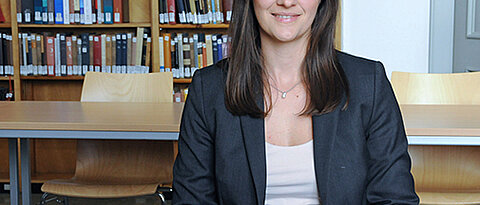
1600 years ago, the Church Father Jerome took a highly creative approach to the translation of the Old Testament Book of Judith: he cut the original text down to about a half, as the theologian Lydia Lange demonstrates in her doctoral thesis.
more
The very first cry of neonates is marked by their maternal language. This seems to be especially apparent in tonal languages, where pitch and pitch fluctuation determine the meaning of words - as a team of scientists led by the University of Würzburg has demonstrated for the first time.
more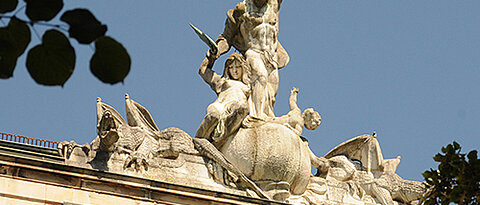
Once again, the prestigious Shanghai Ranking has placed the University of Würzburg among the world’s top 200 universities. It is one of only four Bavarian and fourteen German universities in this league.
more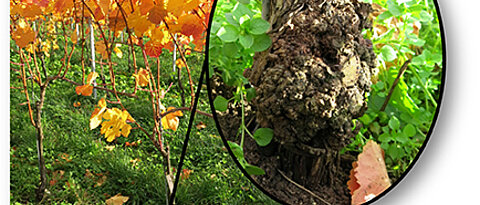
At present, an early diagnosis of the tumour-like crown gall disease affecting grapevines seems out of reach. Two researchers have taken a closer look at the tumours and found a very special environment.
more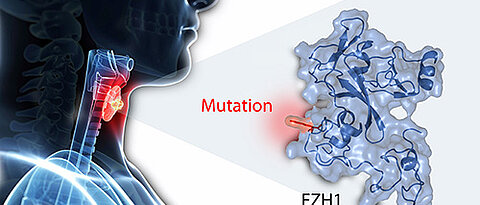
Autonomous adenomas are the most common benign tumours of the thyroid gland. Mutations in two genes account for around 70 percent of the cases. Scientists from the University of Würzburg have now discovered another key trigger.
more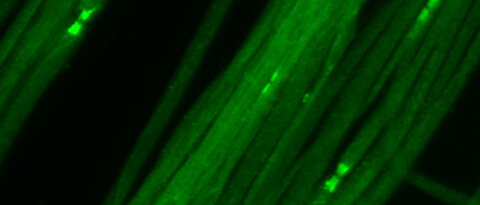
Würzburg neurologists have discovered an antibody that is involved in triggering certain forms of neuropathies. This discovery also allowed them to show a way to treat these diseases successfully.
more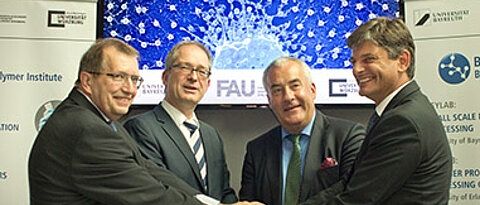
Novel materials essential for key technologies in the fields of energy, communication, climate change and health: these are the focal areas of research at the Bavarian Polymer Institute. The partner universities have now signed a cooperation agreement.
more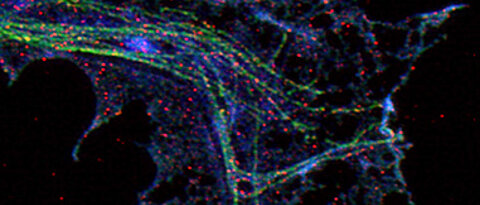
Looking for the causes of amyotrophic lateral sclerosis (ALS), an international consortium has discovered two new disease genes. Scientists from the Institute of Clinical Neurobiology of the Würzburg university hospital contributed to the discovery.
more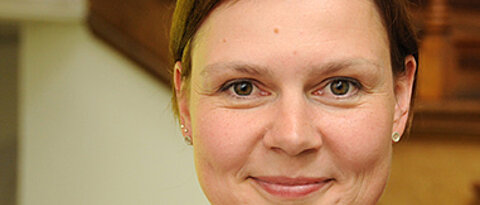
Neuroscientist Barbara Händel investigates the connection of rhythmic movement and perception. Her work is funded by the European Research Council with a EUR 1.5 million Starting Grant.
more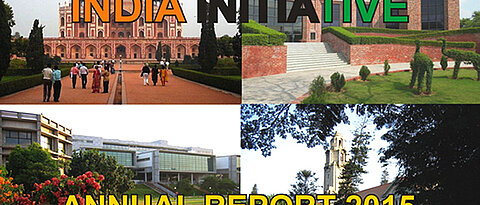
A powerful boost for the cooperation of the Julius-Maximilians-Universität Würzburg (JMU) and partner universities in New Delhi. JMU gets around EUR 375,000 worth of funding for three new cooperation projects.
more